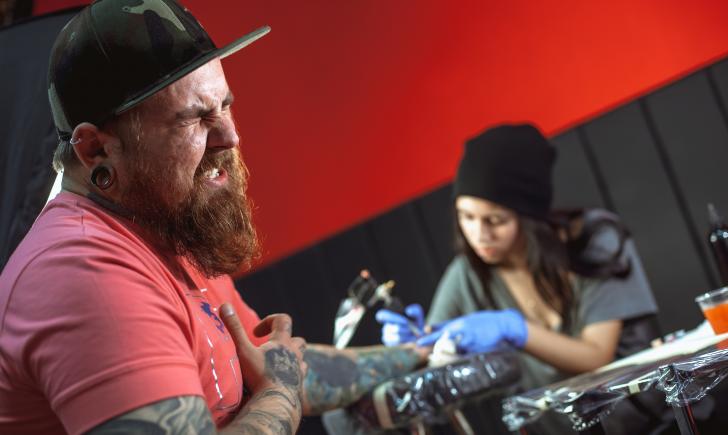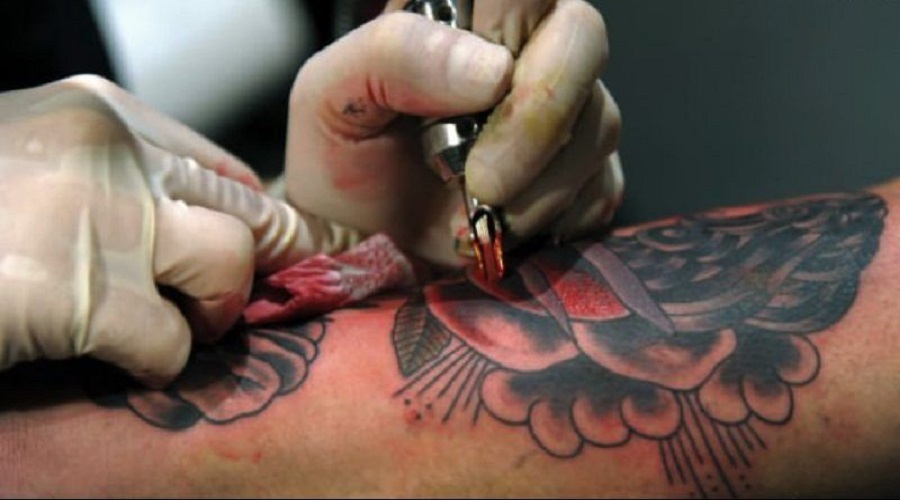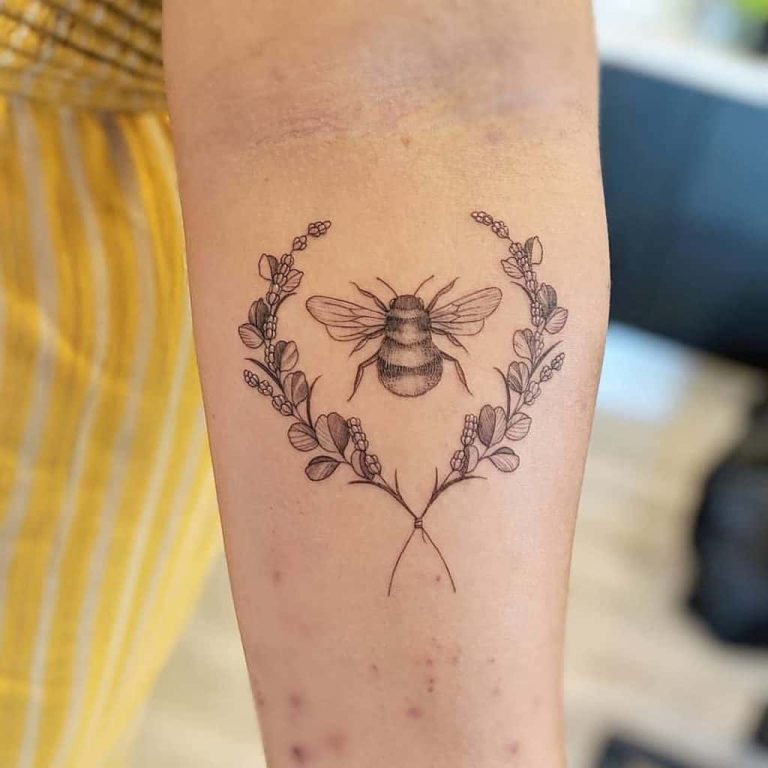Last Updated on January 1, 2025 by Sheila R. Wright
Yes, numbing cream does work for tattoos. The cream works by temporarily numbing the skin so that you don’t feel the pain of the needle. It’s important to note that numbing cream is not a painkiller, so you will still feel some discomfort during the tattooing process.
If you’re considering numbing cream for your next tattoo, you might be wondering if it actually works. The short answer is yes, numbing cream can help reduce the pain of getting a tattoo. However, there are a few things to keep in mind before using it.
First of all, numbing cream won’t completely eliminate the pain of getting a tattoo. It can help reduce it, but you will still feel some discomfort. Secondly, numbing cream does have the potential to numb your skin too much and this can make it difficult for the artist to work on your tattoo properly.
For this reason, it’s important to use numbing cream sparingly and only when absolutely necessary.
If you do decide to use numbing cream for your next tattoo, be sure to follow the instructions carefully and only use enough to numb the area being worked on. This way you’ll minimize any risk of complications and ensure that your tattoo comes out looking great!
Should People Use Numbing Cream? | Ask The Artist
Is It Okay to Use Numbing Cream before a Tattoo?
When it comes to tattoos, numbing cream can be a great way to reduce pain and discomfort during the tattooing process. Numbing creams work by temporarily numbing the skin, which can help to minimize pain and discomfort. There are a variety of numbing creams available on the market, so it’s important to choose one that is specifically designed for use before tattoos.
It’s also important to follow the instructions on the numbing cream packaging carefully in order to avoid any adverse effects. Overall, using a numbing cream before getting a tattoo can help to make the experience more comfortable.
Does Tattoo Numbing Cream Affect a Tattoo?
If you’re considering getting a tattoo, you may be wondering if numbing cream can help make the experience more bearable. While numbing cream won’t completely eliminate the pain of getting a tattoo, it can help to reduce it. Here’s what you need to know about using numbing cream for tattoos.
How Does Numbing Cream Work?
Numbing cream works by temporarily blocking nerve signals from reaching the brain. This process is known as anesthesia and is commonly used in medical procedures to help minimize pain and discomfort.
When applied to the skin, numbing cream can help to reduce the sensation of pain from a needle piercing the skin.
Is Numbing Cream Safe?
When used as directed, numbing cream is generally safe for most people.
However, there are some potential side effects that you should be aware of before using it. The most common side effect is skin irritation, which can occur if the numbing cream is not removed properly after your tattoo session. Additionally, numbness lasting longer than a few hours has been reported in rare cases.
If this occurs, it’s important to seek medical attention as soon as possible since prolonged numbness can lead to tissue damage. Finally, allergic reactions to ingredients innumming creams are possible but rare. Be sure to do a patch test on a small area of skin before applying it over your entire tattoo area just to be safe.
Overall though, numbing creams are considered safe when used as directed and shouldn’t cause any long-term problems.
How To Use Numbing Cream For Tattoos Applying numbing cream before getting a tattoo is pretty simple but there are a few things you need to do to ensure optimal results:
-Cleanse the area where you’ll be applying the numbing cream with soap and water then dry it off completely.
-Apply a generous amount ofnummingcreamto the entire tattoo area then cover with plastic wrap.- Wait at least 30 minutes for the anesthetic properties ofthecreamtotake effect.-Removetheplasticwrapandwipeoffanyexcesscreambeforeproceedingwithyourtattoo session.
How Long Does Numbing Cream Last for Tattoo?
If you’re getting a tattoo, you’re probably wondering how long the numbing cream will last. The answer depends on a few factors, including the type of cream used and the person’s pain tolerance.
Most numbing creams contain lidocaine or prilocaine, which are local anesthetics that work by blocking nerve signals.
When applied to the skin, they can numb the area for up to two hours. However, everyone is different and some people may feel the effects of the cream for shorter or longer periods of time. Additionally, numbing creams can lose their effectiveness if they are exposed to air or water.
If you’re concerned about pain during your tattoo session, talk to your artist about using a numbing cream. They can help you determine if it’s right for you and how long it will last.
Why Won’T Tattoo Artists Use Numbing Cream?
There are a few reasons tattoo artists may not want to use numbing cream on their clients. The first reason is that numbing cream can actually make the tattooing process more difficult. This is because the numbness caused by the cream can make it harder for the artist to gauge how deep they are needle is going, which can lead to them accidentally going too deep and causing pain or damage to the skin.
Another reason is that some numbing creams contain ingredients that can thin the blood, making it harder for the tattoo artist to get a clean line or even cause excessive bleeding. This can also increase the risk of infection. Finally, some people may have an allergic reaction to the ingredients in numbing creams, which can be painful and dangerous.
For these reasons, it’s important to talk to your tattoo artist before using any kind of numbing cream on your skin.

Credit: www.tattoo.com
Does Numbing Cream Affect Tattoos
Numbing cream is often used to help lessen the pain of getting a tattoo. But does it really work? The answer is yes and no.
Numbing cream can help take the edge off the pain, but it doesn’t completely eliminate it. You may still feel some discomfort while getting a tattoo, even with numbing cream.
Why Don’T Tattoo Artists Use Numbing Cream
If you’ve ever been curious about why tattoo artists don’t use numbing cream, here’s your answer! It turns out that there are a few reasons why this is the case. First of all, numbing cream can actually make the tattooing process more difficult.
This is because the cream can cause the skin to swell, making it harder for the artist to work with. Additionally, numbing creams can also interfere with the ink, making it harder to get a consistent result. Finally, most importantly, numbing creams can be dangerous if not used properly.
There have been cases where people have had serious reactions to the ingredients in these creams. For all of these reasons, it’s best to simply go without when getting a tattoo!
How Long Does Tattoo Numbing Cream Last
When it comes to numbing creams for tattoos, how long they last can vary depending on the type of cream and the person’s individual pain tolerance. However, in general, most numbing creams will begin to wear off after about an hour or so. This means that if you are getting a particularly large or painful tattoo, you may need to reapply the cream several times throughout the duration of your tattoo session.
There are a few different brands of numbing cream on the market, each with their own unique ingredients and formulations. Some contain lidocaine, which is a common local anesthetic, while others use benzocaine or tetracaine. The active ingredient in each cream will determine how long it lasts and how effective it is at numbing the skin.
In general, however, you can expect most numbing creams to provide at least some relief for an hour or two.
If you’re concerned about pain during your tattoo session, talk to your artist about using a numbing cream. They can help you choose the right one for your needs and make sure that you apply it correctly so that it lasts as long as possible.
Conclusion
Numbing cream is a topical anesthetic that can be used to numb the skin prior to tattooing. It works by temporarily numbing the nerve endings in the area where it is applied, which can help reduce pain and discomfort during the tattooing process. There are a variety of numbing creams on the market, and each one typically contains different active ingredients.
Some popular active ingredients include lidocaine, tetracaine, and prilocaine. Numbing creams are generally safe to use, but it is important to follow the instructions on the label carefully. In some cases, they may cause skin irritation or allergic reactions.




